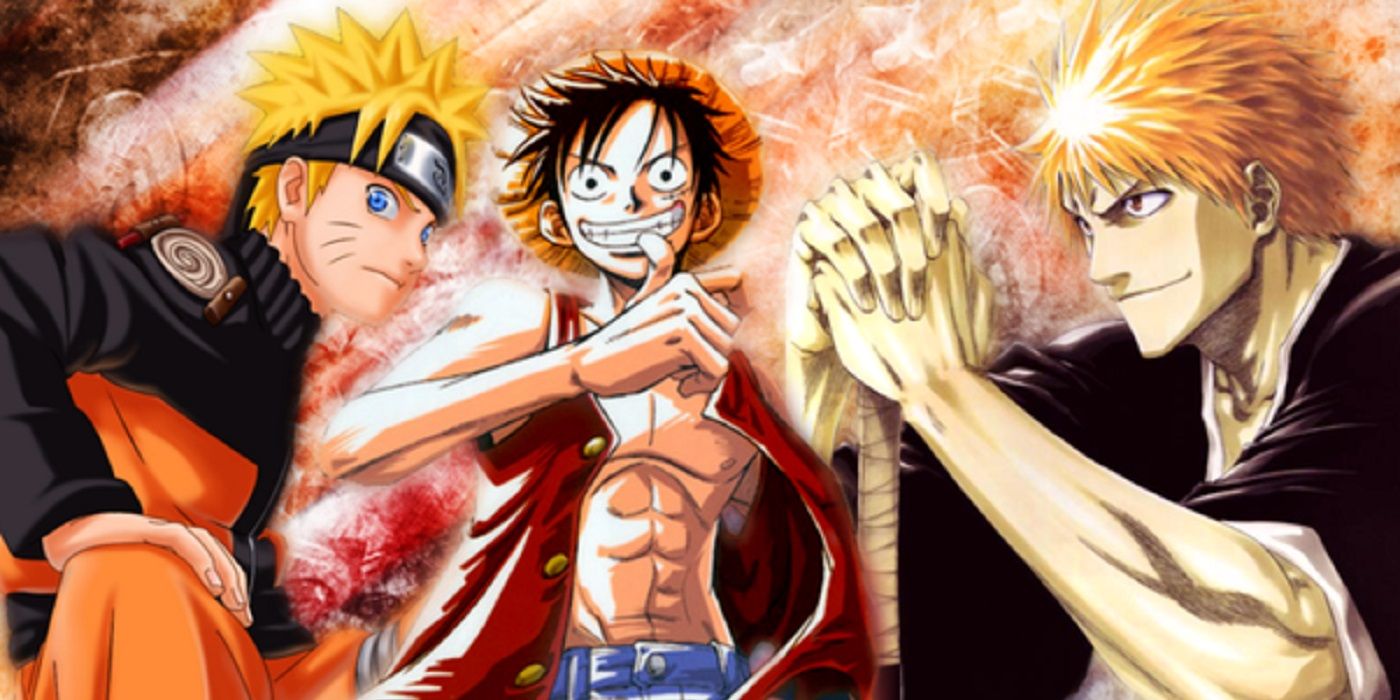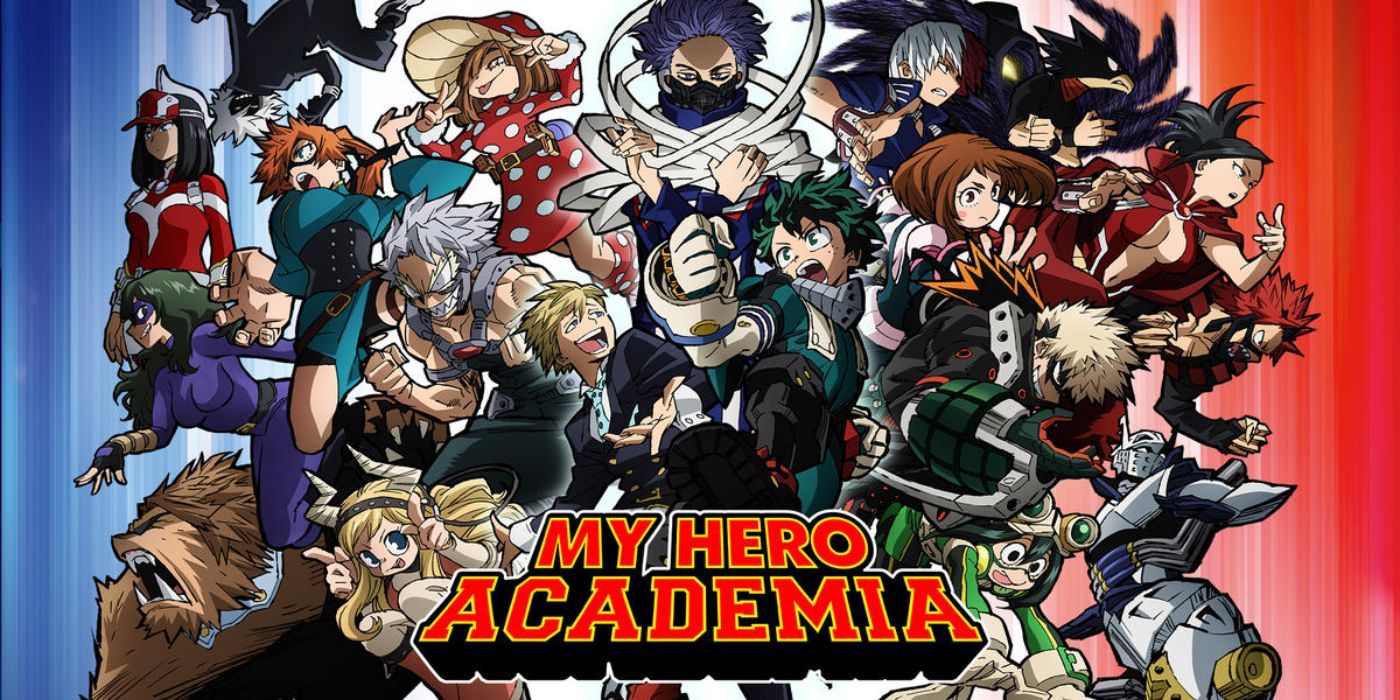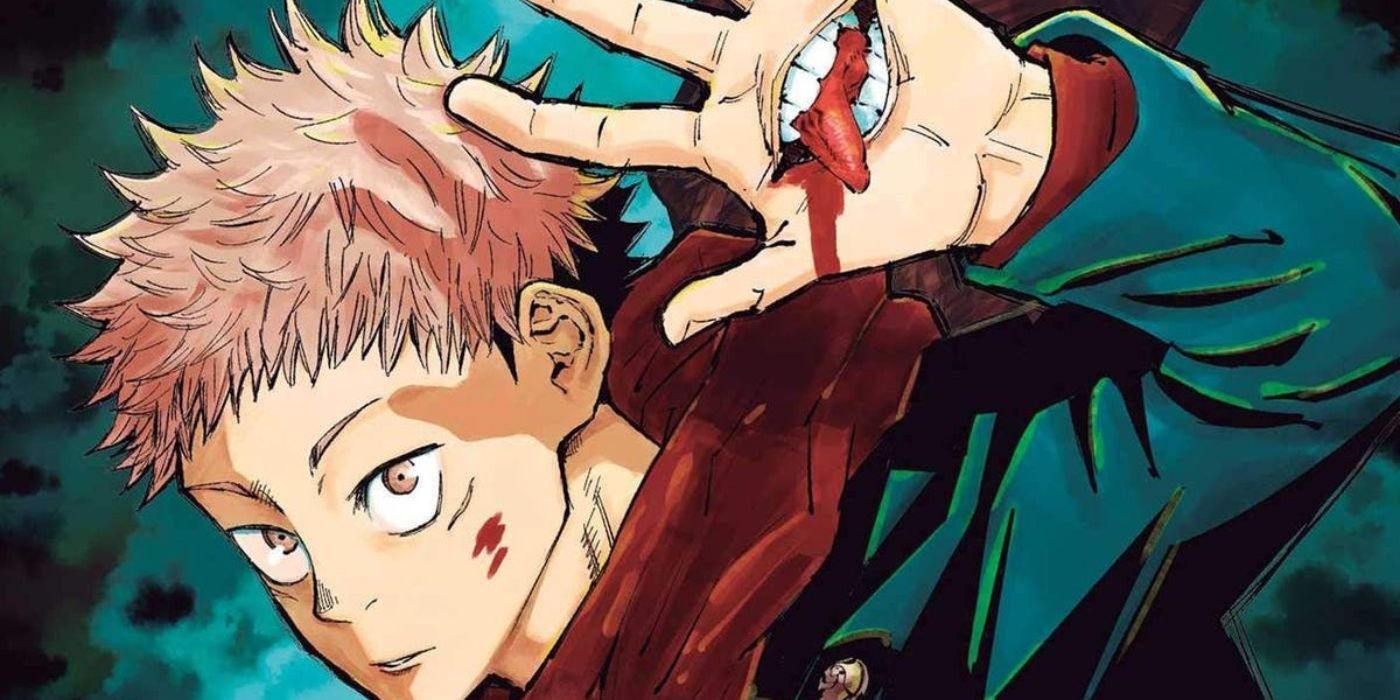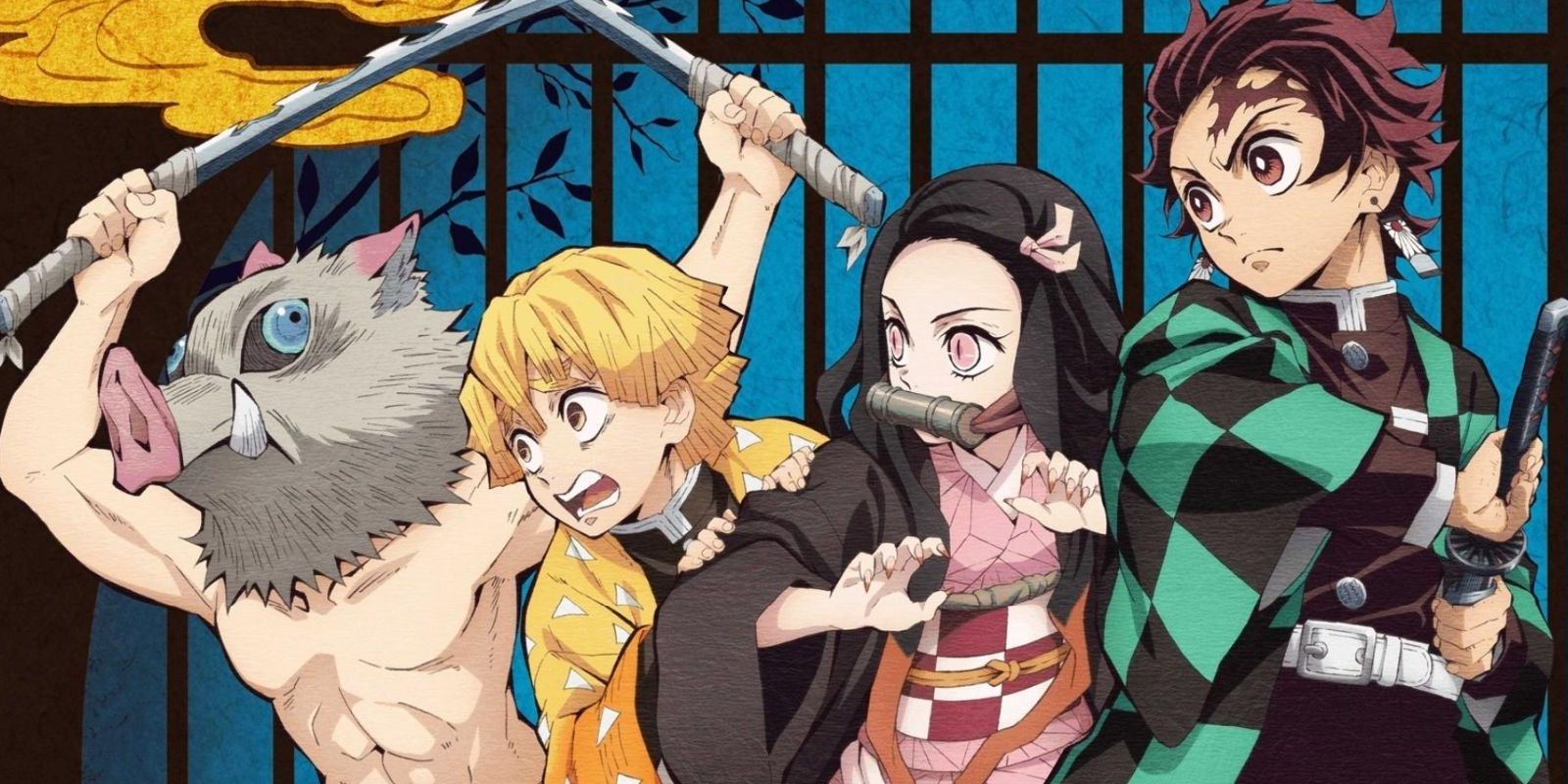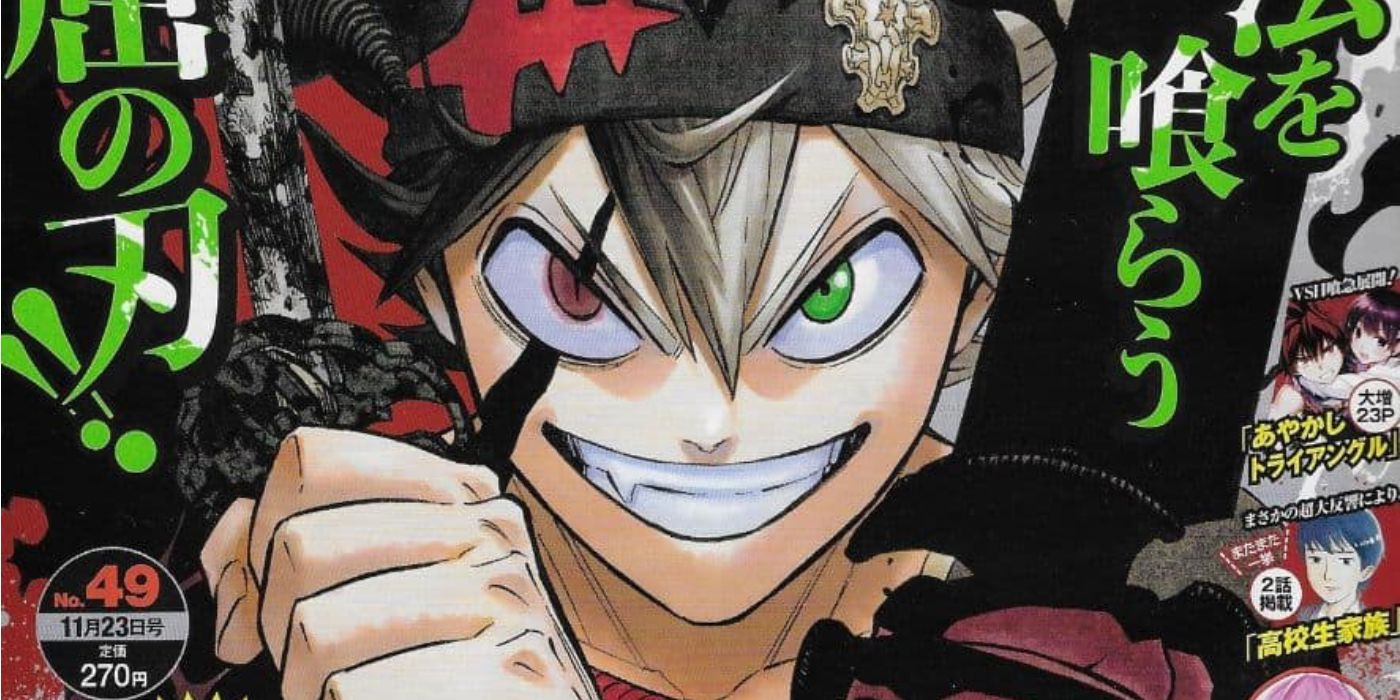In the world of anime, few have managed to attain the success of Bleach, Naruto and One Piece. These three shows have become juggernauts in the medium, with few shows managing to draw in as many viewers and readers the way they have, which resulted in them being labeled the "Big Three" of Shonen anime.
After their success, came many "copycat" anime/manga that tried repeat their formula, but they almost never amounted to much more than temporary competitors. However, there have been a few shows to come out in last few years that have seemingly broken that trend. Rather than try and recapture the feeling of one or all of the shows in the "Big Three," they seem to have learned from their example and have attempted to create something fresh and new, yet still somewhat familiar. In this way, these shows have become like spiritual successors to the classics.
Naruto - My Hero Academia
Probably the most obvious to any viewer, My Hero Academia acts as the perfect successor to Naruto. For many fans of Naruto, it was hard not to notice the similarities between the show almost immediately. They both feature a young boy with lackluster abilities with a potential for greatness if given the proper the training and support. They also both introduce a rival characters that motivate the protagonist to get stronger as well as a strong and likable supporting casts. They both even have evil organizations that are led by a timeless old foe.
That being said, My Hero Academia has managed to somehow set itself quite apart from its obvious inspiration. Whenever given the opportunity to have a similar storyline, it finds a way to go in a completely different direction. Instead of having a situation where the protagonist Izuku "Deku" Midoriya has to save his rival Katsuki Bakugo from turning evil like Sasuke did, Bakugo never once actually lost sight of who he was when captured by villains. This created a much different dynamic between the characters that fans weren't necessarily expecting.
In many ways, My Hero Academia and Naruto are two board games with the exact same pieces but with each game being unique and following a different set of rules than the other.
Bleach - Jujutsu Kaisen
While quite different at a glance, Jujutsu Kaisen has managed to fill the void left by Bleach after the anime was cancelled and the manga finished in a way no other has been able to do. Featuring its own character with a reddish hair that has a monster living inside of him and fights demonic creatures with supernatural powers, it's easy to see the similarities between the two shows. That being said, it's how Jujutsu Kaisen has managed to distance itself from its predecessor that makes it so worth the watch.
Bleach did a lot right, but it also did many things wrong and Jujutsu Kaisen has had the benefit of learning from them in a way its predecessor never could. As an example, Bleach didn't always do right by its female cast, usually using them as either props for fan-service or the tired damsel-in-distress trope (or both in Orihime's case). Jujutsu Kaisen by contrast has an incredibly strong female cast and gives them just as much agency and respect as the men in the show, and at times even more.
The show also features a very dark atmosphere much like Bleach did, but arguably leans way more into it. Bleach was dark in its own right for sure, as fans will soon see in the Thousand Year Blood War arc that is to be animated and released sometime next year, but not in the same way. Jujutsu Kaisen revels in its darkness to the point that at times it resembles a horror anime more so than an action one. This gives the show a very unique feel, similar to how Bleach did for its watchers back when it was first airing.
One Piece - Demon Slayer
This one is arguably a bit of a stretch, but in many ways Demon Slayer has become something of a successor to One Piece. While in the last two examples the new shows shared many commonalities with their predecessors, in this situation it's more about the role that they each have played. They both take an established story premise and manage to breathe enough new life into it that they are able to stand apart from the rest of the competition. Which is probably why they are each some of the most successful manga to be published in the last few years.
One Piece is the story of a rubber boy who wants to become the King of the Pirates, while Demon Slayer is the story of a boy who wants to turn his demon sister back into a human being. So far, nothing is really shared between the two, but strangely enough that is what they have in common. They each follow certain tropes that are in most shonen anime, but neither strictly adheres to the established formula.
Both series feature stories that have much more lore and world-building than readers/watchers would expect at first, with stories of the past being vital to victories in both the present and future. The characters are also quite realistically depicted for the most part, making it easier to relate and understand their motivations. These two things combined help make the world seem much more real and believable and thus, more enjoyable for the audience.
Honorable Mention: Black Clover
This one is a little tricky, as it no longer has an anime series, but regardless it shouldn't be ignored. What makes Black Clover important enough to mention is that it could be argued that it succeeds each of the original Big Three all at once, something that the other shows don't really do.
It has the loud yet lovable failure as a protagonist that can be found in Naruto, as well as a prodigious rival character. It features dark elements as well as even a literal devil as the source of the protagonist's power that he wields through a sword, much like Bleach does, as well as dark themes without leaning too far into them. It even has the lovable crew that acts more like a family than a team and certain philosophical themes related to class and inequality that can sometimes be found in One Piece.
In more ways than one, Black Clover is an amalgamation of the Big Three, and a pretty good one at that. It falls somewhere in the middle of all three but in a way that lets it stand on it's own, even if it can become a little too derivative of the shows it obviously took inspiration from at times.

